As a way to get some more experience with various data analysis tools I needed an engaging side-project. Politics interests me, so an analysis of the publicly available Hansard transcripts from Parliament seemed like a good project.
By analysing the contents of MPs’ speeches in Parliament, I hoped to be able to get a sense of the breadth of their vocabularies (however accurate or inaccurate this might be), and see how they compare with their colleagues. By determining the total number of unique words spoken compared with the total number of words spoken for each Member, it is possible to make comparisons between the “functional” vocabularies of all MPs.
Intelligence and the size of a person’s vocabulary have long been considered analogous, however perhaps a large vocabulary merely indicates a capability or potential for sophisticated thought, rather than a direct indication of this.
There are plenty of caveats with this type of analysis, and some of the reasons why these results might not be an accurate representation of a Member’s true vocabulary are as follows:
- They could be intentionally staying “on message”
- They could be keeping their language simple to be more readily understood
- They might not want to appear pretentious
- English is a second language
- “Facts can be used to prove anything…”
- etc
There is something to be said for keeping language simple and easy to understand: this study from 2005 (with a great title) presents some interesting results about the impact of unnecessary language complexity on fluency: Consequences of Erudite Vernacular Utilized Irrespective of Necessity: Problems with Using Long Words Needlessly
The transcripts used in this project are from both the House of Representatives and Senate, from the 7th of February 2017 to the 17th of August 2017. There are 75 different transcripts, 227 Members which translated into 15.3 million words in the database. To extract only words from the transcripts, all URLs, numbers and punctuation have been removed. Word “uniqueness” is determined after a lowercase transformation, i.e. a reference to “Cash” (as in Michaelia) would be considered a match with “cash” (as in $).
It is also worth noting that verb conjugation is essentially ignored. I.e. “runs”, “running” and “ran” would be considered as 3 unique words, when in a practical sense they are the same verb.
Regardless of these potential factors, the results are interesting and presented here as is.
The total overall word count by Member gives us this:
Note that Brandis doesn’t necessarily have the biggest vocabulary, he has only spoken the most words in Parliament during this period.
Uniqueness by total words spoken
Using 100,000 spoken words as the threshold for inclusion, out of the 227 Members there are 42 from both the House of Representatives and Senate who have reached this number. If we graph the progression of the total unique word count by the total word count, we get a relatively even distribution (colours are random).
Party Colours
If we chart these same 42 Members on a bar graph using their Party colour as the bar colour a few things become apparent:
- Interestingly, at the 100K mark Malcom Roberts has the most unique words, just in front of Scott Ludlam
- The Greens are over-represented at the top – 40% of the top 5 places
- The Labor Party mean appears to be above average
- The bottom of the table is relatively heavy with Liberal Party conservatives
(Notes on the colours: all parties are their official colour apart from Australian Conservatives who are pink (sorry Bernadi), Independents who are grey and Nationals who are black, as green and yellow are both already taken)
Party by Party
Looking at the mean for each party we get the following. Note that the mean is calculated word by word and each Member’s total word count is different. When one Member is no longer part of the calculation, the overall mean can jump a little (as seen in the Liberal Party and Greens graphs).
The grey bar represents the mean for the 42 Members who reached 100,000 words. The grey area around the bar is one standard deviation from the mean.
Head to head by Portfolio
Looking at Members individually gives some interesting results. Some of these Members haven’t reached the 100k mark yet however the trajectory is relatively obvious. The following graphs pit the Minister and Shadow Minister against each other for a few of the different portfolios and positions. Until I can explore the difference between speeches and answers, the impact of speechwriters on these results is unknown.
The Cabinet
Looking at a graph of the complete Members of Cabinet the results are a little concerning. Most are below the Mean and a good proportion are also below one standard deviation.
The mean of all Cabinet Members is below, and it is sitting almost at one standard deviation below the overall mean.
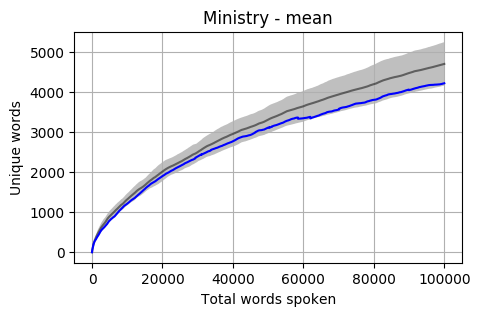
Up Next
There are a few other dimensions that I plan to explore in the coming weeks:
Speech context
The data is ready to segment by Speeches, Questions and Answers, and I believe that we might find some interesting differences between prepared speeches and answers that could indicate a good/bad speech writer.
Overall uniqueness
At the moment uniqueness is being judged member by member. Exploring who has the most unique words across all members (and what these are) could also be interesting.
Self reference
Could some analysis showing who refers to themselves the most (“I”, “me”, “myself”, “my”, etc) show us who is the most self-important?
Historical comparison
This data has only been for 2017. How would previous governments or cabinets compare with today?
UK Parliament
Are UK Hansard archives available in XML format?
Footnotes
This is a personal side-project unrelated to my work or employer. The accuracy of the results is not guaranteed and I could have made some fundamental errors in the code. If you have any questions, concerns, suggestions or requests please leave me a comment below.
More information about the technical process is available in this post: Hansard analysis – technical overview.
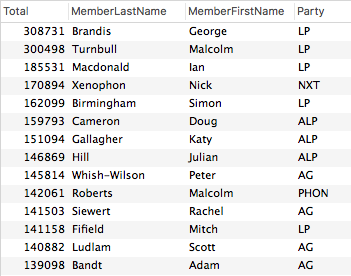
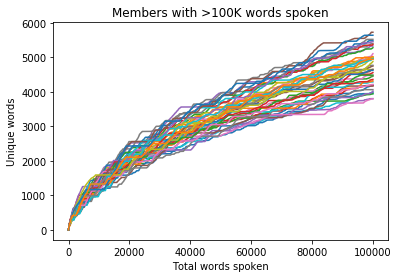

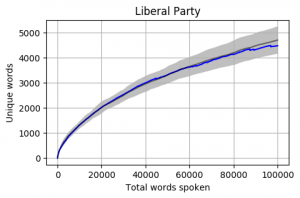
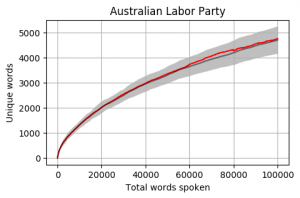
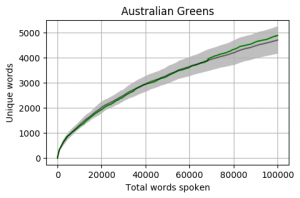
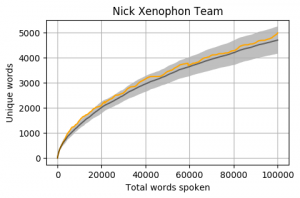

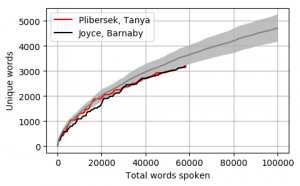
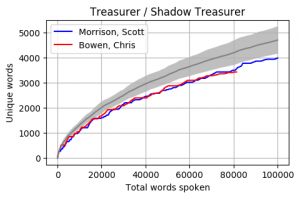
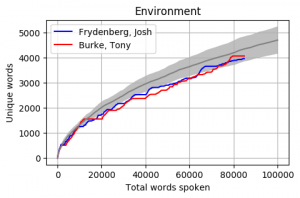
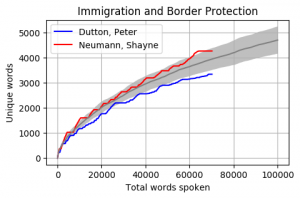

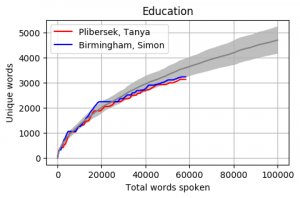
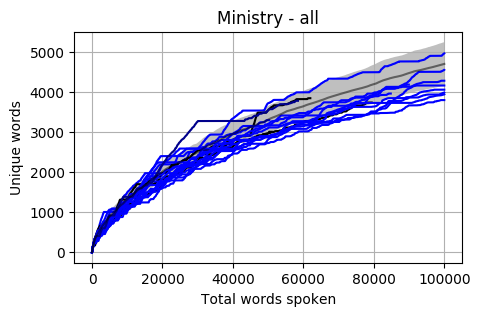
sed -i ‘s/Labour/Labor/g’ “dan\’s otherwise excellent post”
i look forward to the next installment unless Media Monitors offer you a job first
thanks Greg – resolved